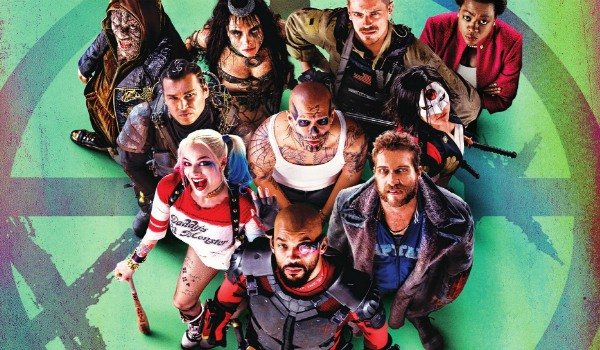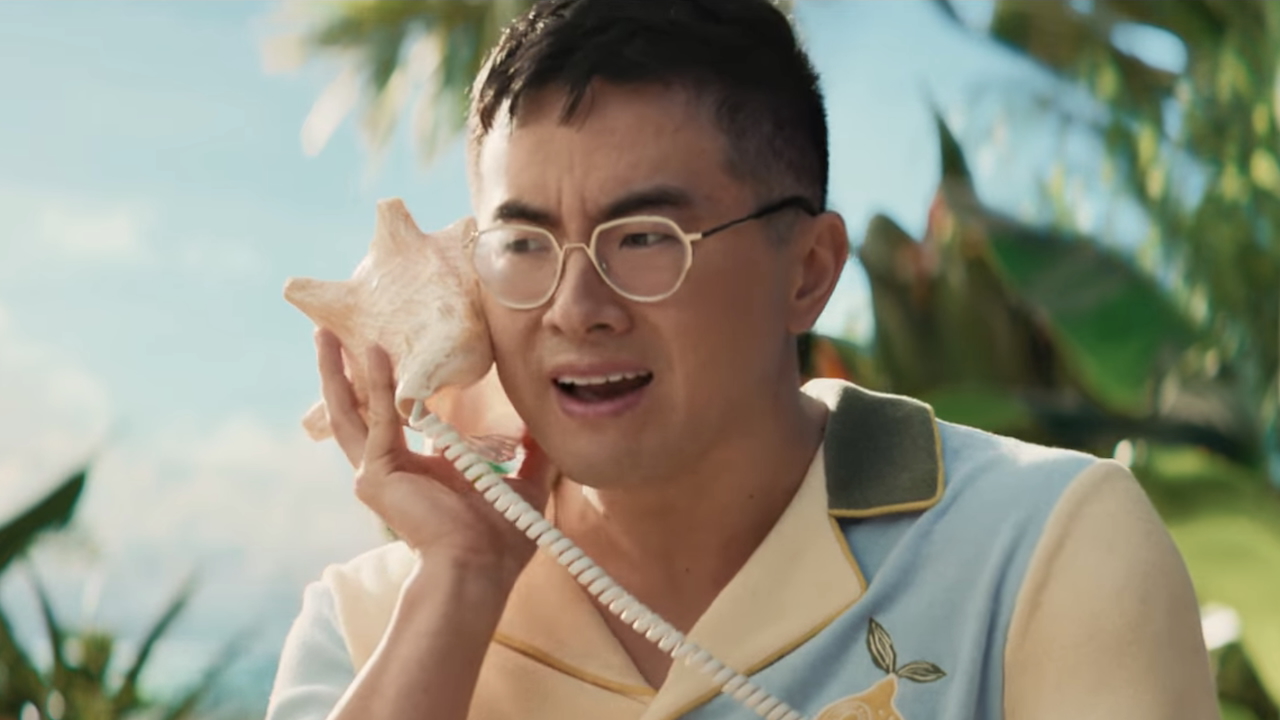How The Suicide Squad Movie Characters Compare To Their Comic Counterparts

Your Daily Blend of Entertainment News
You are now subscribed
Your newsletter sign-up was successful

When Marvel released a movie about a ragtag group of prison inmates who reluctantly band together to save their world from a powerful villain (i.e. Guardians of the Galaxy), DC said, "Well, we can do that!"
All kidding aside, Warner Bros' 2016 hit Suicide Squad directed by David Ayer was a rare kind of comic book movie that made heroes out of the bad guys. Alongside Jared Leto's interpretation of the Joker (who was not actually on the team), the DC supervillains who were brought on as Suicide Squad characters included Deadshot (Will Smith), Harley Quinn (Margot Robbie), and even Captain Boomerang (Jai Courtney in, maybe, his best role).
Several members of the original cast also is set to return for the 2021 Suicide Squad sequel, The Suicide Squad, written and directed by the obvious choice, Guardians of the Galaxy helmer James Gunn.
Of course, if you are a bigger fan of comic book movies than comic books, your only knowledge of the Suicide Squad is from what the movie has shown you. The truth is that the history of Task Force X goes back even further in the DC comics universe than Amanda Waller's proposal to have bad guys try on the hero life for size. So let's look at the similarities and differences between the Suicide Squad characters and their printed page counterparts. First, here's some background.

Suicide Squad (comics, 1959-present)
The Suicide Squad, a moniker now used to describe bad guys forced into doing good, has existed in multiple iterations and concepts in DC comics since 1959. For instance, the original team, created by writer Robert Kanigher and artist Ross Andru, first appeared in DC’s The Brave and the Bold series and consisted of expendable soldiers taking on more unusually dangerous assignments.
The mythos of the Suicide Squad were expanded upon in DC’s Secret Origins series, that revealed the existence of several World War II era “Suicide Squadrons” under the name Task Force X. But then in 1987, DC writer John Ostrander revived the Suicide Squad moniker to create its modern iteration, which sees powerful government official Amanda Waller forcing the world’s most feared supervillains to carry out dangerous missions to help save the world they don’t even care about.
The Suicide Squad has been made up of many superhero adversaries over the years, including Penguin, Poison Ivy, Count Vertigo, Doctor Light, Killer Frost, Blockbuster and many more. But what about the characters who did appear in the Suicide Squad movie? How do these comic book anti-heroes compare to their cinematic interpretations?
Your Daily Blend of Entertainment News

Deadshot
Floyd Lawton is an expert marksman and moonlights as one of the DC universe’s deadliest assassins under the moniker Deadshot. His first appearance as a Batman villain in 1950 saw him sporting a pair of six shooters, an eye mask and a three-piece suit and top hat combo, before his attire evolved to a red jumpsuit, white wraparound head mask and assault rifles.
In the Suicide Squad movie, Will Smith plays Deadshot as a big softie with a rough exterior who just wants to do right by his daughter, Zoe.
In the comics, Deadshot is a coldblooded sociopath with no regard for human life whose only motivation to contribute to the Suicide Squad is his desire to die in a blaze of glory, since he does not consider his life one worth living.
As for his relationship with his daughter, he only discovers her existence by accident and chooses to “do right by her” by declaring war against the local gangs plaguing his her hometown before faking his death instead of seeking a typical fatherhood role. I could never imagine Will Smith as a deadbeat dad, anyway, especially after The Pursuit of Happyness.

Harley Quinn
The Joker has never been the romantic type, yet somehow Harley Quinn is head over heels for the clown. The 2016 Suicide Squad movie reveals that Quinn (Margot Robbie) was formerly Harleen Quinzel, a psychiatrist at Arkham Asylum, before Jared Leto’s Joker manipulated her into a sadistic basket case whom he treats as a pet.
Margot Robbie just about nails the portrayal, the most crucial (and controversial) amendment being her appearance, which is a far cry from the outfit she frequently wore pre-2011.
Before Harley became a recurring member of the Suicide Squad and even before she became a staple of DC Comics, animation icons Bruce Timm and Paul Dini introduced her as Joker’s lover in Batman: The Animated Series in 1992.
To match her master - I’m sorry, "partner in crime," she dons powder white face makeup and a red and black jester outfit. She was never intended to be the highly sexualized, pigtailed, and fish-net clad interpretation the Arkham Asylum games introduced. Suicide Squad borrow from those games, as well as her New 52 look.
To be fair, who’s to say Harley Quinn would not eventually grow out of jester garb. The ‘90s were a different time.

Amanda Waller
Maintaining a ragtag group of sadistic, sociopathic outcasts would require someone just as despicable looking after them, and Amanda “The Wall” Waller is undoubtedly one mean lady.
The high-ranking government, portrayed in the Suicide Squad movie by Academy Award-winner Viola Davis, comes up with the idea of a team of some very bad people who could do some good. That said, she has no problem blowing their heads off if any of them fall out of line.
Viola Davis’ portrayal of Amanda Waller is probably the one character that best feels ripped straight from the pages of DC Comics, matching her ruthlessness and cold demeanor to a T. The biggest difference as that she is not the true founder of the Suicide Squad in the comics. The original incarnations of the team from the late '50s inspired her to propose a new Task Force X in the comic’s 1987 revival.
Amanda Waller may be DC’s most interesting anti-hero: a woman working for the law who is not afraid to break some rules to get her way.

Colonel Rick Flag
Rick Flag is a good ‘ol, all-American boy who just wants to serve his country right. That is a harder motivation to follow than it would seem when you’re in love with a powerful witch and employed by… well, essentially, the same thing (Amanda Waller).
Flag’s depiction in the Suicide Squad, as played by Joel Kinnaman, is an interesting case, as his role is both exaggerated and watered down at the same time. For one, there is not just one Flag in the DC comics continuity, but three.
Rick Flag Sr. was a founding member of the original World War II unit Suicide Squad before later joining Task Force X. He was eventually replaced as the leader by his son, Rick Flag, Jr., and later, reluctantly, accepted to lead Amanda Waller’s new Squad. His estranged son, Rick Flag III, is not much of a team player, but has been rescued by the Squad on a few occasions.
Oh, and you’re probably wondering about Rick Flag’s romance with June Moone (Enchantress) and how that matches up with the comics. Well, let’s talk about her for a moment.

Enchantress
Archaeologist June Moone (Cara Delevigne) made an unusual mistake for someone in her line of work by breaking off the head of a priceless statue, which released the spirit of a powerful sorceress that is bonded with her. Perhaps if the Suicide Squad movie would have stuck with the Enchantress’ comic book counterpart’s origin, it could have seemed slightly more plausible.
First appearing in a 1966 issue of DC’s Strange Adventures, June Moone was a freelance artist who attended a costume party at an old castle inhabiting a magical being, who empowers Moone with magical abilities to defeat an evil presence in the castle. Starting out as a powerful hero, Enchantress would later turn bad after Supergirl prevented her from gaining universal omnipotence twice.
So at least the Suicide Squad movie got Enchantress’ power-hungry motivations somewhat right, but June Moone’s relationship with Rick Flag was a plot point exclusive to the movie. Care to guess who her love interest in the comics is?

Killer Croc
As Amanda Waller describes in the Suicide Squad movie, evolution took a backwards turn with Waylon Jones (Adewale Akinnuoye-Agbaje), a man whose rare genetic condition gives him a reptilian apperance. His animalistic reputation, which includes devouring humans, earned him the nickname Killer Croc in Gotham City.
Killer Croc's role in the movie is quite small compared to the larger than life persona he has led as one of the more dangerous recurring members of Batman’s rogues gallery since his first official appearance in Detective Comics #524 in 1983. When I say large, I mean “hulking.”
His comic book counterpart also has a tragic backstory as an orphan raised by an abusive alcoholic aunt, but has also seen brighter days with June Moone (Enchantress) as his romantic partner. No wonder he is always quiet around Rick Flag in the movie.
I should mention, Killer Croc has not been known to dress like a hooded thug and enjoy watching BET, as the Suicide Squad movie chose to depict him as, but I digress.

El Diablo
If I were to give any character in the Suicide Squad movie the most credit to be called a “hero,” it would the team’s pyrokinetic gangster.
El Diablo, whose real name is Chato Santana and is played by Jay Hernandez, is not really a bad guy, excluding his reputation as Los Angeles’ gang leader. He’s a cursed former family man with a tragic past just trying chill out for once when forced to do Amanda Waller’s dirty work.
The origin of his abilities is also merely hinted at in the movie’s climax when he reveals his demonic form to defeat Enchantress’ brother, Incubus. Otherwise, how he became El Diablo is left somewhat vague, perhaps because there is more than one source to choose from.
The first DC comics character to hold the moniker of El Diablo, introduced in 1970, was 19th-century vigilante of the Old West, Lazarus Lane, who was cursed to unleash the titular demon bonded with him whenever he falls unconscious. The second iteration, a man from modern times named Rafael Sandoval who was introduced in 1989, has no other abilities than his own boxing skills, which he uses to fight street thugs.
Santana actually inherited Lazarus Lane’s curse to become a flamethrowing baddie in his first appearance as El Diablo in 2008. In The New 52, the 2011 reboot of DC’s continuity, Santana became a member of the Suicide Squad’s current iteration.
At least that clears up what that big fiery demon in the climax was all about.

Captain Boomerang
The best bragging rights that Captain Boomerang has in Suicide Squad is being Australian actor Jai Courtney’s most defining role. That's not a huge feat, I know, but that may be how the flying weapon-maker prefers it.
Boomerang (real name George “Digger” Harkness) is a scummy, drunken mess of a human being who seems to take enjoyment in being a nuisance to his fellow members of the Suicide Squad. He does not believe he has any business saving the world and would rather just go ditch the area, if not for the explosive charge in his head.
How close is this to his comic book counterpart? Pretty darn close.
Having first appeared as an adversary to The Flash in 1960 sporting a more gimmicky outfit, Captain Boomerang has also been a prominent member of the Suicide Squad since its second iteration, despite being its least respected. At this point in the continuity, he is the sole permanent member still required to wear his explosive implant, due to Amanda Waller’s complete lack of trust in him.
His reputation for betrayal and generally vile personality makes him one of the most hated characters in the DC comics universe by heroes and villains alike. You know what they say, whatever you throw at the world will just come right back to you.

Katana
Thanks to Rick Flag’s brief impromptu exposition in Suicide Squad, we know that Katana (Karen Fukuhara) can cut people in half with one stroke of her sword, which traps the souls of its victims. That's cool, so what else is there to know about her that the movie left out?
Her real name is Tatsu Yamashiro, a Japanese woman skilled in martial arts, who first appeared in DC comics in 1983. She witnessed her husband’s murder by the Yakuza with the very sword she would soon claim as her own, which she would use to fight crime in America under her new alias, Katana.
She has been affiliated with several superhero teams, including DC’s Outsiders (a team founded by Batman), Birds of Prey with Black Canary and Starling, and she was a co-captain to Rick Flag of the Suicide Squad.
Katana’s contribution to the DC universe in just 36 years deeply impressive. Perhaps I owe Rick Flag an apology. How could he have explained all of that in just 30 seconds?

Slipknot
You probably just remember Slipknot (if you can remember him at all), played by Adam Beach, as Rick Flag’s test dummy for the explosive charges placed in the Suicide Squad’s heads. His mindblowing exit early into the film’s story comes after Captain Boomerang recommends he attempt an escape.
His contribution to the Suicide Squad movie is actually not far off from the comics.
First introduced to DC Comics as an antagonist to superhero Firestorm, Slipknot (real name Christopher Weiss) was appointed to join the Suicide Squad in 1987, when they were only wearing explosive devices on their arms. After a conversation with Captain Boomerang convinces Slipknot that the bombs are fake, he makes a run for it and loses his arm in the process. How tragic.
After learning these facts about DC's most iconic anti-heroes, I am curious how much deeper into their mythology James Gunn will go in The Suicide Squad. We'll find out when the sequel/reboot/whatever you want to call it is released on August 5, 2021.

Jason Wiese writes feature stories for CinemaBlend. His occupation results from years dreaming of a filmmaking career, settling on a "professional film fan" career, studying journalism at Lindenwood University in St. Charles, MO (where he served as Culture Editor for its student-run print and online publications), and a brief stint of reviewing movies for fun. He would later continue that side-hustle of film criticism on TikTok (@wiesewisdom), where he posts videos on a semi-weekly basis. Look for his name in almost any article about Batman.
